Table of Contents
ToggleFreelancing isn’t just a career choice; it’s a lifestyle that comes with its own set of perks and quirks. Picture this: rolling out of bed at 10 AM, sipping coffee in your pajamas, and tackling projects from the comfort of your couch. Sounds dreamy, right? But let’s not sugarcoat it—freelancers also juggle deadlines, client demands, and the ever-looming threat of “What’s for lunch?” while trying to maintain a semblance of work-life balance.
In this wild world of self-employment, each day is an adventure filled with triumphs and occasional chaos. One moment, you’re a creative genius crafting the next big thing; the next, you’re deep in the trenches of spreadsheets and invoices. Join the journey as we dive into the life of a freelancer, where every day is a blend of hustle, humor, and the occasional existential crisis—all served with a side of flexibility.
Overview of Freelancing
Freelancing offers unique opportunities and challenges that shape a distinct lifestyle. Individuals typically experience greater flexibility in their work schedules, choosing projects that align with their skills and interests. Many freelancers enjoy the ability to work from various locations, whether at home, in cafes, or while traveling, providing a refreshing change from traditional office environments.
Financial management plays a crucial role in a freelancer’s life. Earnings fluctuate based on completed projects, prompting freelancers to budget wisely and save during peak periods. Clients present diverse expectations, requiring freelancers to adapt quickly and manage time effectively to meet deadlines consistently.
Networking becomes vital for freelancers. Building strong relationships with clients and other professionals helps foster recurring work opportunities. Digital platforms streamline this process, connecting freelancers to potential clients globally. Expressing skills effectively through portfolios and social media is essential for attracting attention in a competitive market.
Daily routines often combine creative work with administrative responsibilities. Freelancers might spend hours perfecting a design, writing content, or coding software. Simultaneously, invoicing and managing communications demand attention to detail and organization. This duality enriches the freelancer experience, fostering personal and professional growth.
Despite its challenges, freelancing cultivates resilience and adaptability. Individuals develop problem-solving abilities and learn to navigate uncertainties with confidence. Ultimately, the freelance lifestyle offers a unique blend of freedom and responsibility, making it a compelling choice for many.
Benefits of the Life of Freelancer
Freelancers enjoy numerous advantages, including flexibility and diverse projects. These benefits significantly enhance their professional and personal lives.
Flexibility in Work Hours
Freelancers often create their schedules. This flexibility allows them to work during peak productivity hours or accommodate personal commitments. They enjoy the freedom to choose when and how much to work, making it easier to balance work and life. Individuals can take breaks as needed, which promotes mental clarity and avoids burnout. Many find that this arrangement fosters creativity and innovation. Having control over work hours empowers freelancers to adapt to changing circumstances, enabling them to thrive in a challenging environment.
Variety of Projects
Engaging in various projects keeps freelancers motivated. They select assignments that align with their interests and expertise, which enhances job satisfaction. Opportunities range from short-term gigs to long-term contracts across different industries. This diversity allows freelancers to develop new skills and expand their portfolios. Exposure to different working styles and challenges sharpens their adaptability. Freelancers frequently enjoy the thrill of tackling unique tasks, avoiding monotony in their careers. This variety ensures each day brings fresh opportunities for growth and creativity.
Challenges Faced by Freelancers
Freelancers encounter various challenges that can impact their professional experience. Two significant obstacles include financial instability and maintaining a healthy work-life balance.
Financial Instability
Freelancers often experience unpredictable income streams. Unlike traditional employment, freelancing lacks a consistent paycheck. Payment delays from clients can further exacerbate financial uncertainty. Budgeting becomes essential for managing expenses during lean months. Many freelancers set aside savings to cushion against income fluctuations. Planning for taxes proves vital since freelancers are responsible for their tax obligations. Without careful financial management, stress can accumulate quickly, affecting focus and productivity.
Work-Life Balance
Striking a balance between work and personal life poses another challenge for freelancers. Flexibility often blurs the lines between professional and personal time. Working from home presents distractions that can disrupt concentration. Maintaining a structured schedule helps freelancers create boundaries. Setting specific work hours encourages productivity while protecting personal time. Many freelancers prioritize self-care, ensuring they allocate time for relaxation and recreation. Adopting effective time management strategies fosters both career growth and personal well-being.
Essential Skills for Successful Freelancers
Freelancers thrive by mastering key skills essential for navigating their unique work environment. Time management and communication skills stand out among these crucial abilities.
Time Management
Strong time management allows freelancers to prioritize tasks effectively. Setting clear deadlines ensures projects stay on track. Utilizing tools like calendars or project management software enhances productivity. Adapting to varying work schedules enables freelancers to accommodate personal commitments. Creating a daily to-do list fosters focus and accountability. Maximizing productivity during peak hours can lead to more efficient work processes. Recognizing when to take breaks prevents burnout and maintains healthy work habits. Establishing routines helps freelancers balance multiple projects seamlessly.
Communication Skills
Effective communication skills play a critical role in a freelancer’s success. Clear and concise interactions build strong client relationships. Utilizing various channels—email, video calls, chats—ensures messages reach clients in preferred formats. Active listening fosters understanding of client needs and expectations. Seeking feedback regularly allows for continuous improvement. Tailoring communication styles to different audiences builds rapport and trust. Documenting client conversations and agreements promotes transparency. Navigating tough conversations with professionalism enhances reputation. Being responsive to inquiries shows commitment and improves client satisfaction.
Tips for Thriving as a Freelancer
Establishing a routine is crucial for freelancers. Structured schedules enhance productivity and help manage time effectively. Prioritizing tasks enables freelancers to focus on what’s most important each day.
Maintaining effective communication is essential. Clear conversations with clients foster trust and ensure expectations align. Active listening contributes to stronger relationships, enabling freelancers to tailor their work to client needs.
Budgeting plays a significant role in financial stability. Managing unpredictable income through careful planning keeps expenses in check. Saving funds during peak periods can provide security during lean months.
Networking opens doors for new opportunities. Engaging with professional communities, both online and offline, connects freelancers to potential clients. Building relationships often leads to recurring work and referrals.
Diversifying skill sets enhances job prospects. Acquiring new skills makes freelancers adaptable to various projects. This versatility keeps the workday engaging and promotes continuous professional growth.
Self-care should never be overlooked. Setting aside time for relaxation prevents burnout. Balancing work responsibilities with personal interests supports overall well-being.
Seeking feedback leads to improvement. Constructive criticism from clients can refine skills and elevate output quality. Embracing this feedback paves the way for ongoing development.
Living the freelance life demands resilience. Challenges will arise, but cultivating a positive mindset fosters growth. Embracing challenges as learning opportunities strengthens freelancers in the long run.
Freelancing offers a unique blend of freedom and responsibility that appeals to many. While it presents challenges like financial uncertainty and the need for self-discipline, the rewards can be significant. The ability to choose projects and create a flexible schedule fosters both personal and professional growth.
By mastering essential skills like time management and communication, freelancers can navigate their careers effectively. Embracing the ups and downs of this lifestyle not only builds resilience but also opens doors to endless opportunities. For those willing to embrace the hustle, the freelance journey can be a fulfilling path to success.







